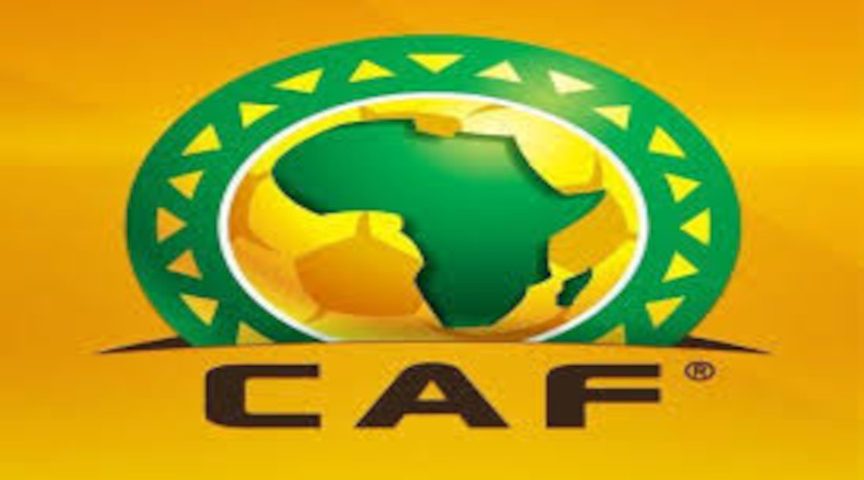Qui Benefacit Animæ?[1]

Football’s Racist Shame (Part Two) Contrasting Positions – Normalising the Abnormal
December 30, 2020
African Football – A Changing World (Part One) Visions
January 12, 2021Qui Benefacit Animæ?[1]

By Satish Sekar © Satish Sekar (December 27th 2020
Who Benefits?
Qui benefacit animæ? It is the most important question in journalism and particularly apt in the case of CAF (the Confederation of African Football) President Ahmad Ahmad. In an exclusive interview with Ahmad Ahmad soon after he defeated long-term incumbent Issa Hayatou, Ahmad Ahmad explained his vision.
He wanted to reform CAF. He told me that he faced enemies who opposed the reforms that he wanted to introduce. That was his explanation of the accusations made against him by Musa Bility at the time.
Ahmad Ahmad was recently banned from all football activities by FIFA’s Ethics Committee. There was little new in the allegations, apart from a religious trip to Mecca – the Umrah – which was said to have been paid for by CAF.
A month ago, Ahmad Ahmad a Vice-President of CAF was banned for 5 years. Corruption allegations had dogged his Presidency. Last year he was even arrested in Paris, but details were leaked. Massive coverage of his arrest followed – little of the release without charge.
Discretely absent from the condemnation of Ahmad Ahmad over the Umrah Trip was the fact that many other African football dignitaries had gone as well. CAF paid for them too.
If the President of CAF deserved condemnation and punishment over this, what about the others? And why, if this was an offence worthy of sanction, had it taken so long to emerge and result in selective punishment?
Appeal
Last year CAF requested FIFA’s assistance. FIFA General Secretary Fatma Samoura was installed to push through policies and improve administration of CAF. The term was six months. FIFA wanted it extended, leading to further accusations of a neo-colonial mentality in football’s governing body.
CAF and Ahmad Ahmad refused to extend FIFA’s mandate. Suddenly, the accusations – old ones – resurfaced, along with Umrah. Many African football observers believe that Ahmad Ahmad’s ban is more about FIFA asserting control over African football than anything CAF’s President may or may not have done.
Standards
FIFA comes under fire – rightly in my opinion – for the differences in the execution of FIFA policies. FIFA imposed the decisions of an unaccountable ‘Court’ on football. The Court of Arbitration for Sport is not legally accountable to any jurisdiction, yet FIFA imposes its decisions as binding on all in football. By what right?
Refusal to abide by its decisions leads to threats of bans, but there are exceptions. Belgian club Sarong went to a domestic court and won – claiming arbitration could not be imposed legally on them. Neither they nor Belgium’s FA were banned by FIFA for this. Why not? The FIFA rules were clear, but Belgium were ranked best in the world by FIFA. How could they be banned? They were not.
Further Exceptions
The rules clearly had exceptions. But while Belgium was not sanctioned at all Trinidad and Tobago was bullied and cajoled. Its crime – submitting documents slightly late. There was no common-sense or justice, just unnecessary punitive punishment after the local FA followed the judgement of a local court before trying to comply with FIFA.
Around the same time FIFA’s President went to the USA to dine with and thank them for helping FIFA to clean up its act. Really? Did the US follow FIFA’s rules? Was there any sanction of the USA for its flagrant flaunting of FIFA’s rules? Did anyone ask the golden question, Qui beneficat aminææ? The answer, sadly, was glaringly obvious.
But there are other favourites. Sierra Leone’s FA has not had elections since 2013. The Presidential term is four years. Although there were legal proceedings – FIFA supported the incumbent President Isha Johansen, while she was accused of corruption, along with Vice-President Brima Kamara and General secretary Chris Kamara, insisting on that administration remaining in charge despite the wishes of Sierra Leone’s government and Anti-Corruption Commission. They spent a night in jail in 2016 before being freed on bail.
Sierra Leone’s football suffered greatly. Poised to qualify for the 2019 Africa Cup of Nationa (AFCON) they were banned. There was a Méxican stand-off that continued until Sierra Leone’s courts spoke, dismissing the charges against Johansen and Kamara in May 2019. They were reinstated after an absurdly lengthy investigation and trial process. The FIFA ban was lifted, but what about the electoral term?
It mattered nought. Johansen and Kamara remain in power. FIFA responded by delaying the elections even more. It remains to be seen if Johannsen gets a double term with one election – it isn’t far away.
And then there is la Côte d’Ivoire. The Elephants’ most prolific striker – scorer of 65 goals for his country – Didier Drogba wanted to become President of his country’s Football Association but lacked the necessary support.
Drogba was determined and continued his campaign after failing to receive the necessary support. FIFA later responded to Drogba’s complaints by imposing a Normalisation Committee on the 2015 AFCON champions. Many African football experts criticise this, claiming that this is another example of FIFA trying to impose its will on African football.
Again, Cicero stands tallest. Qui beneficiat aminæ?
[1] In his first major case, the great Roman orator Marcus Tullius Cicero, defence of Sextus Rocius a charge of patricide centred on this question qui benefacit animæ (who benefits?). His client was acquitted. It is the first rule of investigative journalism.

